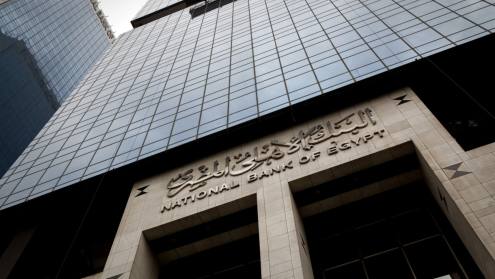In a cramped, hot, airless meeting room in Cape Town's Westin Grand hotel, Jacko Maree, chief executive of Standard Bank, takes questions from journalists. Alongside him is Jiang Jianqing, chairman and chief executive of the Industrial and Commercial Bank of China (ICBC). Last year, the two banks signed a deal that left ICBC with 20% of Standard Bank. It was a landmark transaction that many see as a blueprint for Africa's future.
The atmosphere could not be described as tense, but it does feel hurried. Or should that be harried? Both men have snatched half an hour from their busy World Economic Forum schedules to speak to the media at a joint press conference. The majority of the questions are directed, via a translator, to Mr Jiang. Journalists want to know what ICBC's motives are in Africa, what projects the bank is working on and whether they will truly benefit indigenous Africans. Mr Maree looks on patiently. He does not look smug, but he has a right to. The ICBC deal could not have come at a better time for Standard Bank. As banks across the developed world suffered a simultaneous blood clot in 2008, Standard Bank received a $5.6bn cash injection. And the two banks have not stood still since then.
Aside from working with ICBC on 65 joint projects in the African continent alone, Standard Bank is using its new-found wealth to invest overseas. In an exclusive post-conference interview with The Banker, Mr Maree says that he is always on the look-out for opportunities. "Is there anything imminent? No. But we've always, as a bank, had to be opportunistic," he says. "We went into Brazil, for example, when it wasn't fashionable because we have got a better chance of being successful when not every other bank in the world is trying to do the same thing."
Sights on Russia
Take Russia, for example. Hardly the home of cheerful economic headlines these days, but Standard Bank, in March, purchased 33% of struggling local investment bank Troika Dialog.
"We've kind of been through the best and worst of Russia," says Mr Maree, referring to the Russian financial crisis of 1998 when Standard Bank lost about $100m. "We recovered it all in 1999 because our deals were properly structured," he adds. And why has the bank chosen to invest in Russia again? "It has always been in our sights. It is exactly the kind of market for us. We're a developing markets bank, and of course one of our natural points of expertise is resources," he says. Troika Dialog is one of two investment banks that dominate the scene in Russia's financial markets, alongside Renaissance Capital. "We've been looking for ways to expand our presence in Russia and we had worked with Troika Dialog on many, many deals over the years. We knew them well and things just kind of came together," says Mr Maree. "We took the view that it was better to be seen to be locally owned in Russia, rather than just a foreign bank, as we were."
This inevitably leads to the question of how Standard Bank is coping with being 20% owned by a foreign bank. South Africa and China are not two nations that one would traditionally associate with a close cultural fit but Mr Maree says that things have gone remarkably well. "We have found our relationship with ICBC to have been absolutely straightforward and where we have had issues, we've dealt with them speedily and easily," he says. Standard Bank now has 20 staff set up in an office in Beijing and the bank reported, in last year's results, that the net profit after tax as a direct result of the relationship with ICBC was in excess of $10m.
And what of South Africa's banking sector domestically? Mr Maree is impressed by how local banks have weathered the wider financial crisis. "The thing that killed banks globally was liquidity, the big withdrawals from the system, and we didn't have any of that. You won't find another emerging market that has the same developed long-term deposit structure and long-term interest rate structure that we have in this country," he says.
South Africa faces tough challenges ahead. It is enduring its first recession for 17 years and recently inaugurated a new president, Jacob Zuma, in controversial circumstances. An avowed populist with strong links to the unions, many financiers fear he could upset the financial status quo. Mr Maree is reticent about commenting on the political situation, but adopts a wait-and-see stance: "I hope they continue where the last government left off, which was very sound sensible policies and I have no reason to suspect that will change." Many in South Africa's financial community will hope that he is right.











